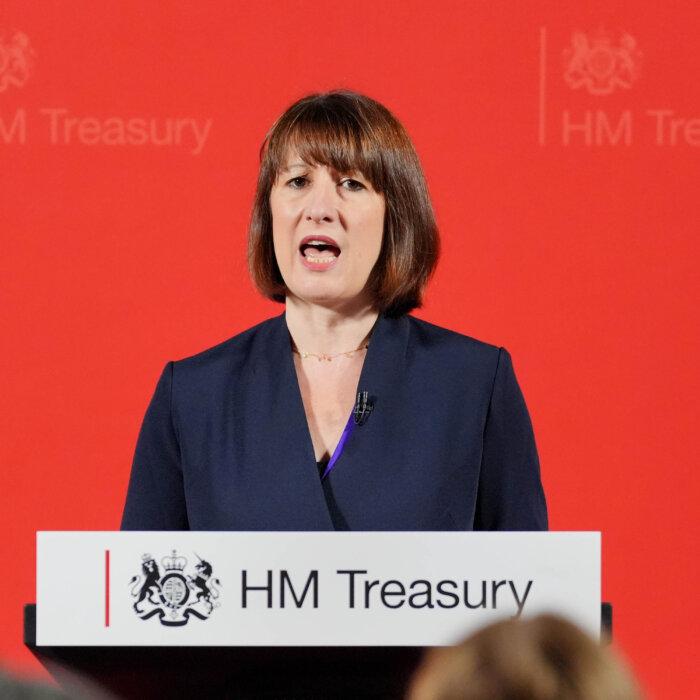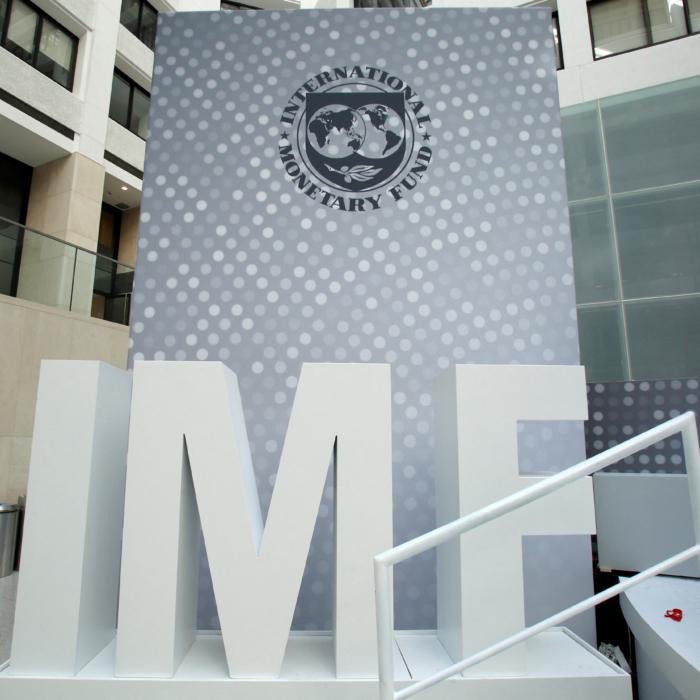The Labour government’s first Budget on Oct. 30 will be a “reset for our economy,” Chancellor of the Exchequer Rachel Reeves has said.
Reeves made the comments on Wednesday ahead of talks with finance ministers from around the world at the International Monetary Fund (IMF) meeting in Washington.
The chancellor said: “A Britain built on the rock of economic stability is a Britain that is a strong and credible international partner.
“I’ll be in Washington to tell the world that our upcoming Budget will be a reset for our economy as we invest in the foundations of future growth.
“It’s from this solid base that we will be able to best represent British interests and show leadership on the major issues like the conflicts in the Middle East and Ukraine.”
Reeves’s optimism contrasts with her tone in recent months, when she had warned of “tough decisions” in the upcoming Budget.
The Budget will come within a series of party-imposed restrictions, with the new government committed to avoiding cuts to public services, while pledging not to raise income tax or corporation tax, or to increase national insurance and VAT.
Growth Forecasts
On Tuesday, the IMF upgraded its 2024 growth forecast from 0.7 percent to 1.1 percent, citing declines in inflation and interest rates boosting spending.However, not all forecasters’ predictions are as optimistic. On Thursday, the EY Item Club downgraded growth forecasts for the next two years.
The economic forecasting group predicts that UK GDP will increase by 0.9 percent this year, downgraded from its July prediction of 1.1 percent. EY also predicted that growth next year will be 1.5 percent, down from earlier forecasts of 2 percent.
The forecasters also suggested that Bank of England rate-setters’ own caution not to cut interest rates too quickly will contribute to “steady rather than rapid” growth.
Matt Swannell, chief economic adviser to the EY Item Club, said: “Following last year’s technical recession, a strong start to 2024 helped establish the UK’s recovery and a return to steady growth is forecast for next year.
“However, lower household savings has reduced the scope of potential consumer spending and sticky inflation means that interest rate cuts are set to occur at a gradual pace.
“This means that growth in 2025 won’t be as robust as it could have been.”
British businesses have also grown at their slowest rate in 11 months, according to S&P Global.
The S&P’s Flash Purchasing Managers’ Index reported a reading of 51.7 this month, lower than economists’ predictions of 52.6 and down from 52.6 in September. Any score above 50 indicates activity is growing, while any score below means contraction.
Chris Williamson, chief business economist at S&P Global marketing intelligence, put the slump in business activity down to “gloomy government rhetoric” and that uncertainty ahead of the Budget “has dampened business confidence and spending.”
‘Confident’ of More Investment
Despite uncertainty from some forecasters and the chancellor’s own previous pessimism, Prime Minister Sir Keir Starmer remains confident his government can build a strong economy.On Oct. 15, Starmer hosted the UK’s first International Investment summit attended by 300 industry leaders where he promised to upgrade the regulatory regime and get rid of bureaucracy that blocks investment.
Starmer said the summit resulted in some £63 million in inward investment, adding he was “confident” the UK would see more before Christmas.
The prime minister also said that the upcoming Budget was important, as it was the new Labour government’s “first opportunity to define the way in which we will approach the economy, and that’s why I say we will fix the foundations and rebuild the country.”







